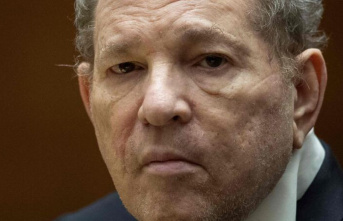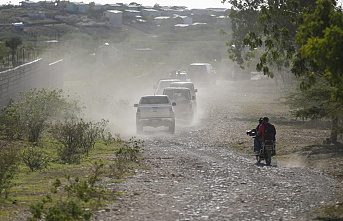During closing arguments at Kim Potter's manslaughter case, Erin Eldridge stated that Wright's death could have been prevented. It was totally avoidable.
Eldridge said to the court that Eldridge had drawn a deadly weapon. She aimed it. "She pointed it at Daunte's chest and fired.
Friday's defense was dismissed after Potter stated to jurors she "didn’t want anyone hurt." She also testified that Wright shouted at her about using her Taser against Wright when she saw fear in the face of a fellow officer.
Potter, who is 49 years old, said that she was sorry it happened and that she can't recall what she said or all that transpired after the shooting. She also stated that a lot of her memories of those moments are "missing."
Eldridge stated during closing arguments that it wasn't about Potter being sorry.
She said, "Of course she feels terrible about what she did." She told jurors that she felt bad about her actions, but it was not appropriate for your deliberations.
Eldridge played Potter's video from the body camera frame-by-frame. Eldridge was trying to doubt Potter's testimony. She said that Potter fired her testimonies after she saw a look of terror on the face of an officer, who was looking into the passenger-side car door and trying handcuff Wright. He was in danger of being dragged, according to the defense.
Eldridge, as prosecutors did throughout the three-week trial stressed that Wright was a former Brooklyn Center police officer and that she was "highly trained" in 26 years of experience. She also claimed she acted recklessly in the murder.
Eldridge stated that "She made a series omissions that led her to shooting and killing Daunte Wayne." This was not a small oopsie. This was not about putting the wrong date on an invoice. ... This was a huge mistake. This was a mistake of epic proportions.
While there are risks every time an officer makes a traffic stop, it didn't justify Potter using her gun against Wright when he pulled away from her during an April 11 traffic stop. They were trying to arrest him for an outstanding weapons possession warrant. Eldridge stated that.
She said, "Carrying a gun and a badge is not a license for you to kill."
Eldridge also dismissed testimony from other officers that Potter was described as a kind person or stated they did not see any wrong with her actions. "The defendant has been in trouble, and her police family is there for her back."
Potter was charged with the first-degree murder of Wright. He was stopped for not having valid license plates and an expired air freshener hanging from Wright's rearview mirror.
Potter was training another officer at that time and said that she wouldn't have pulled the car over to Wright, 20 years old, if she hadn't been alone. She testified that the traffic stop "just got chaotic" after the initial encounter.
"I can remember shouting, 'Taser', 'Taser' and nothing happened. Then he told me he shot me," Potter, whose skin is white, said in tears. After the shooting, her body camera captured Wright saying, "Ah! he shot me."
Potter's lawyers argued that Potter made a mistake, but she would have been justified in using deadly force if it was for the safety of another officer, then-Sgt. Mychal Johnson would have been killed if Wright had dragged him by Wright's car.
Eldridge questioned Potter's claim that she saw fear in Johnson's eyes as she played Potter's body cam video frame-by-frame. She noted that Potter was behind Luckey during most of the interaction, and that Johnson only came into view of her camera after she opened fire.
The death of Wright sparked angry protests in Brooklyn Center for several days. The incident occurred as Derek Chauvin (a white officer) was being tried in Minneapolis for the murder of George Floyd.
Eldridge went in detail about the elements that make first-degree manslaughter. She also mentioned the requirement that slayings be voluntary.
Chu informed jurors that Potter's charges do not include intent and that it is up to the state to prove that she attempted to kill Wright.
To prove first-degree murder, the judge ordered that prosecutors prove that Potter caused Wright’s death by recklessly handling a firearm. They must prove that Potter committed a deliberate or intentional act while using or handling a firearm that created a substantial or unjustifiable danger that she was aware and disregarded and that she endangered safety.
The state must prove second-degree manslaughter. This means that she was knowingly able to cause death or great bodily injury.
A majority of the jury was white. The state sentencing guidelines recommend that first-degree manslaughter be sentenced to seven years, and second-degree manslaughter should be sentenced to four years. However, prosecutors claim they will push for longer sentences.












